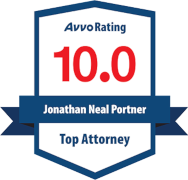SSDI Lawyers in Maryland, Virginia & Washington, D.C.
Seeking Social Security Disability Benefits for Those Who Need It
At Portner & Shure, P.A., we understand the challenges that individuals face when dealing with Social Security Disability Insurance (SSDI) claims. Navigating the complex world of disability benefits can be overwhelming, and that's where our dedicated team of SSDI lawyers steps in to provide expert guidance and support. With a proven track record of success, we are committed to helping clients in Maryland, Virginia, and Washington D.C. secure the benefits they rightfully deserve.
To arrange a free consultation and review of your case, call (410) 995-1515 or contact us online. We offer legal counsel in English, Korean, Spanish, and Chinese to better assist you.
What is SSDI?
Social Security Disability Insurance (SSDI) is a federal program in the United States that provides financial assistance to individuals who are unable to work due to a qualifying disability. Administered by the Social Security Administration (SSA), SSDI is designed to offer support to individuals who have paid into the Social Security system through payroll taxes and have acquired enough work credits to be eligible for disability benefits.
In order to be eligible for Social Security Disability benefits, you need to have earned a set number of work credits. Work credits are earned based on an individual's work history and the amount of income subject to Social Security taxes.
The number of work credits needed to qualify for SSDI benefits depends on the age of the individual at the time they become disabled. Work credits are earned, up to a maximum of four per year, and the specific requirements may change annually.
In addition to fulfilling the number of work credits, you must have a medical condition that meets the Social Security Administration's (SSA) definition of a disability. Those who fulfill the medical condition requirement are those with a severe, long-term, total disability. "Severe" means that the extent of your condition interferes with your ability to perform basic work-related tasks.
"Long-term" means that your condition has lasted, or is expected to last, for at least one year. "Total disability" means that you are not able to perform "substantial gainful activity" (SGA).
If the SSA approves you for disability benefits, you will not receive those benefits for five months. This means that if your claim is approved right away, you will start to receive benefits five months from the date of approval. Most claims take months to a year for approval, and when this happens, you will be credited disability backpay. Disability payments start on the sixth month after your disability began.
Most Social Security Disability claims are initially denied. When this happens, an appeal of the decision may be made. Within 60 days of your receipt of the letter, request a review of the denial. To appeal the decision, the first level of appeal is the Request for Reconsideration, which is simply a request to have another claims examiner review your case. If you are subsequently denied, you may request a hearing with an SSA administrative law judge.
SSDI Application Process
The application process for SSDI involves submitting a detailed application to the Social Security Administration. This can be done online, over the phone, or in person at a local Social Security office. The application requires information about the applicant's medical condition, work history, and other relevant details.
After reviewing the application and supporting documentation (e.g., medical records, diagnostic test results, statements from treating physicians, and other relevant documentation that demonstrates the impact of the disability on the individual's ability to work), the SSA will either approve or deny the claim. Unfortunately, a significant number of initial applications are often denied. In the event of a denial, applicants have the right to appeal the decision through a multi-step appeals process, including reconsideration, a hearing before an administrative law judge, and further appeals if necessary.
If approved, the amount of SSDI benefits is calculated based on the individual's average lifetime earnings before the onset of the disability. The primary goal is to replace a portion of the individual's lost income due to the inability to work. Certain family members of disabled workers may also be eligible for auxiliary benefits.
Individuals receiving SSDI benefits are subject to periodic reviews to assess whether their medical condition has improved or if they are still unable to engage in substantial gainful activity. This review, known as a Continuing Disability Review (CDR), helps ensure that benefits are provided to those who continue to meet the eligibility criteria.
Filing an SSDI application requires attention to detail and a thorough understanding of the eligibility criteria. Our SSDI lawyers will guide you through the application process, ensuring that all necessary documentation is submitted accurately and promptly. Our goal is to maximize your chances of approval right from the start.
Additionally, if your initial SSDI application is denied, don't lose hope. Our experienced team is well-versed in the appeals process and will work diligently to present a compelling case on your behalf. Whether it involves gathering additional medical evidence or preparing you for a disability hearing, we are committed to pursuing every available avenue to secure the benefits you deserve.
The Different Types of Social Security Disability Benefits in Virginia
- Disability Insurance Benefits: These are benefits payable to individuals who are disabled to work and are insured, generally meaning, those who have worked and paid FICA taxes for 5 out of the last 10 years. In order to be considered disabled, one must be unable to perform substantial, gainful activity. This means that the person is not able to work and make money.
- Supplemental Security Income (SSI) Benefits for Adults: These benefits are not based on work, like Disability Insurance Benefits. Instead, these benefits are available to those individuals who have no more than $2,000 in assets and married couples with no more than $3,000 in assets. These restrictions are known as means tests. If you work while receiving SSI benefits, there will be a dollar reduction from your benefits. SSI requires that the beneficiary satisfy the same standard of inability to perform substantial gainful activity due to a condition that can be expected to result in death or has lasted or expected to last for a continuous period of more than 12 months.
- Supplemental Security Income (SSI) Benefits For Children: If a child has a severely disabling condition, he may be eligible for Supplemental Security Income. The same means test for Supplemental Security Income Benefits for adults, as discussed in Number 2, applies to children and their families. When a child reaches the age of 18, he may be able to continue to receive benefits through the SSI adult program or he may be eligible for Disabled Adult Child Benefits.
- Disabled Adult Children's Benefits: Children with disabilities that developed before the age of 22 may be eligible for Disabled Adult Children's Benefits if the parents of the beneficiary become deceased or disabled or reach retirement age and voluntarily retire.
- Disabled Widow or Widower Benefits: These benefits are available to individuals who are at least fifty years of age and have become disabled within 7 years after their spouse has died or within seven years after the claimant last drew benefits based on either mother's or father's earning record from Social Security.
- Divorced Survivor's Benefits: Divorced spouses may be eligible for both regular retirement benefits and widow's or widower's disability retirement benefits under the decedent's earning record even if the disabled widow or widower's benefits are being paid to the current widow or widower. In order to be eligible, the former spouse must have been married for at least 10 years before the finalization of the divorce.
- Dependent Parents Age 62 and Older: If there is a working child with dependent parents 62 and older, the dependent parents may be eligible for disability benefits based on the death of that child. They must show that they are not eligible for a higher benefit and also show that they were dependent on the child, meaning, they are more than 50% dependent on the deceased working child.
How We Can Help
Our team of SSDI lawyers boasts extensive expertise and experience in handling a wide range of disability cases. We are well-versed in the intricate details of Social Security law and have successfully represented countless clients throughout Maryland, Virginia, and Washington D.C. Our commitment to staying abreast of the latest developments in SSDI regulations ensures that we provide top-notch legal services tailored to each client's unique situation.
We understand that every SSDI case is unique, and we approach each client with a personalized strategy. At Portner & Shure, P.A., we take the time to thoroughly assess your situation, gather relevant information, and craft a tailored legal strategy. Our personalized approach ensures that you receive the attention and care your case deserves, increasing the likelihood of a successful outcome.
Contact our experienced team today by calling (410) 995-1515. We can connect you with a skilled slip and fall lawyer at one of our multiple office locations in Washington, D.C., Maryland, or Virginia.

OUR social security disability ATTORNEYs
Serving Maryland, Virginia & Washington, D.C-
Jonathan N. Portner
Managing Partner
-
Simran Rahi
Litigation Partner
-
Richard D. Shure
Of Counsel
-
Valerie F. Portner
Of Counsel
-
Pablo Pérez Salido
Associate Attorney
-
Elizabeth Bermudez
Personal Injury Claims Manager
-
Norma Guevara
Director of Human Resources and Business Development
-
Sarah Sadler
Firm Operations Manager
-
Nandin Dave
Associate Attorney
-
Reginald Jordan
Associate Attorney
-
Kevin A. Ruby
In Memoriam 1972-2018
-
Beth Arbogast
Director of Information Technology
-
Arzoo Jiwani
Criminal Defense Division Manager – Virginia Offices
-
Claudia Hernandez
Criminal Defense Division Manager - Maryland Offices
-
Jennifer Flores
Paralegal
-
Teresa Rivera
Paralegal
-
Hyun Young Chung (Grace)
Paralegal
-
Michelle Ramirez
Paralegal
-
Christine Airey
Paralegal
-
Judith Flores
Paralegal
-
Belen Rodriguez
Paralegal
-
Natalie Solaja
Paralegal
-
Kelly Torres-Gonzalez
Paralegal
-
Brandy Moreira Soriano
Paralegal
-
Christine Phong
Paralegal
-
Audrey Lin
Paralegal
-
Cam Van Tran
Paralegal
-
Gisela Yung
Paralegal
-
Rosanna Yap
Accounting Department, Chinese Department Assistant
-
Rebecca Velazquez Pena
Immigration Intake Specialist
-
Ana Cordic
Associate Attorney
-
Geraldine Linares
Associate Attorney
-
Torrey Johnson-Hochanadel
Associate Attorney

WHAT OUR CLIENTS HAVE TO SAY
SERVING Clients throughout MARYLAND, VIRGINIA & WASHINGTON D.C.-
“The process was very quick”
- Former Client -
“From day one the phone call to this law firm was very attentive”
- M.W. -
“Highly recommend”
- H.K.

WHY HIRE US?
EXPECT MORE WITH PORTNER & SHURE-
We offer legal representation in English, Spanish, Hindi, Korean, Vietnamese, & Chinese languages.
-
We have aggressive litigation tactics, skill, and passion.
-
We have offices in Maryland, Virginia & Washington, D.C.
-
Over 30 Years of Experience Serving Clients
-
We have received countless 5-star Google & Facebook reviews.
-
We have recovered over $400 million on behalf of our clients.

When you hire Portner & Shure, you can expect more from your representation. In addition to getting an attorney, you will get a committed advocates you has your best interests at heart.







.png)











































